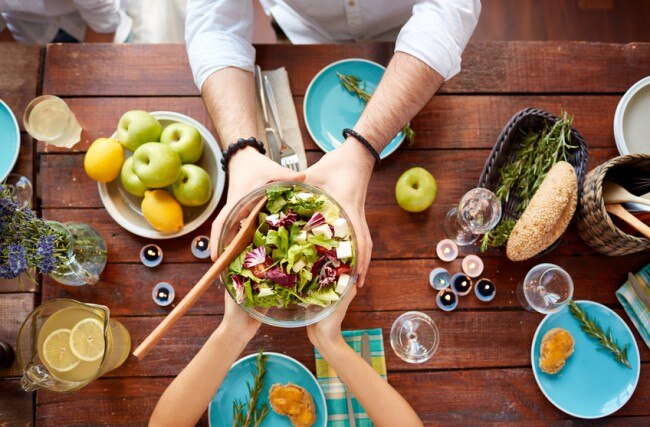Although we all may wish we were high profile celebrities with personal chefs buying and preparing gourmet meals with the highest-quality organic and non-GMO ingredients, the reality is that most of us are living on a budget and trying to do the best we can for ourselves and our families. In some areas, organic food can be difficult to find. Worse yet, when you do find it, it may be drastically more expensive than its conventionally farmed sibling.
When you’re stuck in this conundrum, there are a few tips that can make things a bit easier on your shopping experience…and your wallet.
1. Wash away worries
If organic produce is simply out of the question for your budget, invest in a non-toxic, water soluble fruit and vegetable wash. These cleaning solutions are usually inexpensive and formulated to help wash away some of the dirt, farming contaminants and pesticide residue that remains on your produce once it’s been delivered to the grocery store. A white vinegar soak can also be used for certain produce that will not absorb the rather intense flavor, but it can sometimes cling to leafy vegetables and fruits like berries.
2. Make exceptions when necessary
Skip organic food for anything that can be cracked, cut or peeled. While organic isn’t just about what goes into your body, but also about the sustainability of our farming as well as the health of the overall planet, sometimes your decision making comes down to what is best for your family right now. If the produce you’re buying has a shell you can crack, a thick rind you can cut or a heavy skin you can peel, there is a least a barrier between the part of the food you’re going to eat and the pesticides with which it as been treated.
3. Consider the “Clean Fifteen”
Follow the list of the “Clean Fifteen” from the Environmental Working Group (EWG). Every year EWG releases a list of the “cleanest” and “dirtiest” produce as determined by how much and how many pesticides were present during testing of both multiple samples and single samples of each type of produce listed. The following are options that are least likely to hold pesticide residues:
- Avocado
- Sweet Corn
- Pineapple
- Cabbage
- Sweet Peas (frozen)
- Onions
- Asparagus
- Mangoes
- Papayas
- Kiwi
- Eggplant
- Honeydew Melon
- Grapefruit
- Cantaloupe
- Cauliflower
Tip: the best place to buy organic foods & snacks is at Vitacost.com!

